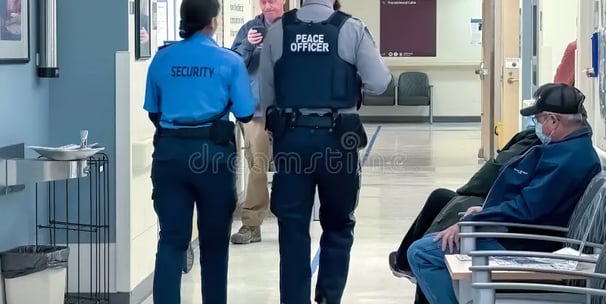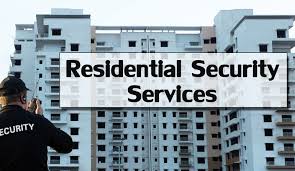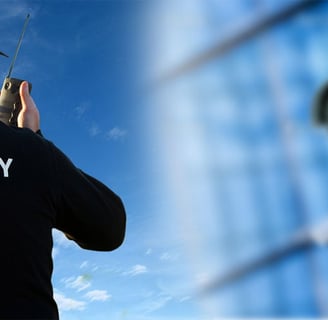Explore MpMp
Security Services typically implement portions of security policies and are implemented via security mechanisms. Mechanisms used to provide confidentiality, identity authentication, integrity authentication, source authentication, and/or support the non-repudiation of information.




Residential Security
Residential security guards, also known as security officers, protect residential properties, their residents, and their assets. Their duties include:
Patrolling: Guards may patrol the inside and outside of the property, including under vehicles
Monitoring: Guards may monitor CCTV footage, alarm systems, and sensors
Securing the property: Guards may ensure that windows and doors are closed and locked, and may open and close security gates
Controlling access: Guards may ensure that only authorized people and property enter and exit the property, and may perform security checks on parcels and mail
Responding to emergencies: Guards may respond to alarms and emergencies
Enforcing rules: Guards may enforce community rules and ensure compliance with government regulations
Assisting residents: Guards may assist residents and visitors, and may resolve disputes between residents
Collaborating with law enforcement: Guards may work with law enforcement to maintain a safe living environment
Other duties may include bookkeeping, recording incidents, and adhering to professionalism and ethics.
Hospital Security
Hospital security guards have many duties, including:
Emergency Management Security guards should have basic first aid and emergency response training so they can help in medical emergencies before medical professionals arrive. They should also respond to medical emergencies in common areas and alert the relevant professionals.
Communication Security guards can help reduce people's worries about crime by talking to the public to help with queries or put them at ease.
Surveillance Security guards should monitor surveillance cameras to intercept any activity that could cause a disturbance.
Patrolling Security guards should patrol the hospital building and grounds to protect staff, patients, and visitors, and to ensure the security of hospital property. They should also monitor activity in and out of the hospital to prevent vandalism, theft, fire, and disturbances.
Report Writing Security guards should understand the importance of report writing and note-taking, which can impact the success of operations, investigations, and the security program.
Controlled Access Security guards should control major entry and exit points to prevent people who have been banned or those with questionable behaviors from entering the facility. They should also use surveillance systems to monitor activity, including conversations and movement.
Law Enforcement Security guards may need to work with law enforcement to provide security for patients and hospital staff, and to prevent patients from fleeing.
Maintaining Order Security guards should enforce policies about patient privacy, who can enter certain areas, and how to keep information safe. They should check that everyone follows the rules and report any problems to help hospitals meet the rules and avoid legal problems.
Other duties of hospital security guards include:
Mediating conflicts between patients and hospital staff
Monitoring escalating or potentially violent behavior
Identifying security risks
Staying alert to potential theft of medical equipment, pharmacy items, or medication
Providing customer service to hospital visitors
De-escalating potentially dangerous or violent situations


